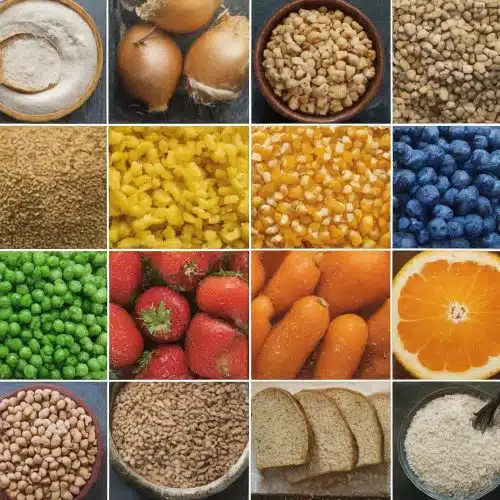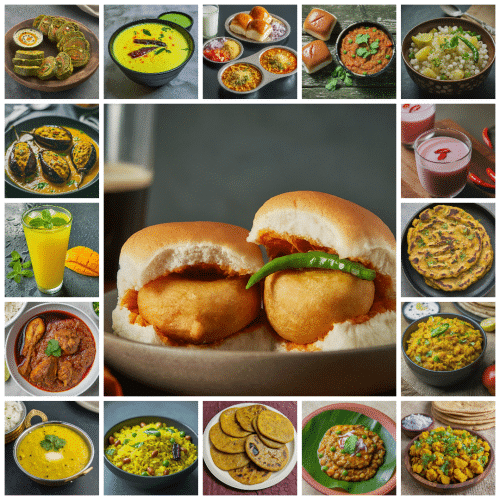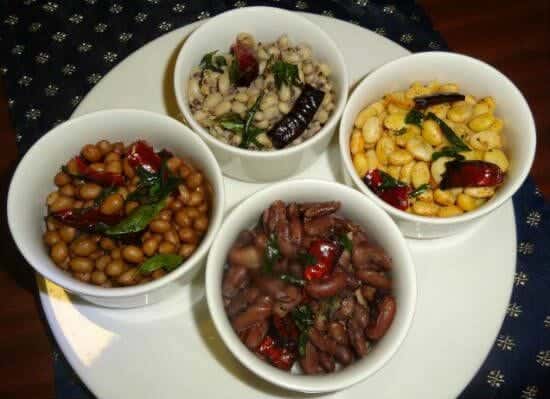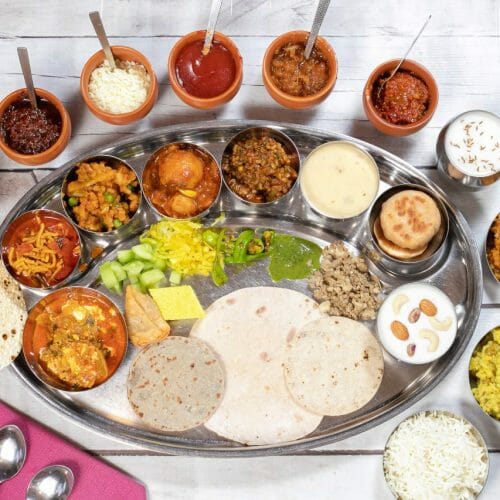Struggling to build muscle despite intense workouts? Your diet might be the missing piece. Strength training isn’t just about lifting weights. It’s about fueling your body with the proper nutrients to maximize gains, enhance recovery, and sustain energy. This blog will guide you through the essentials of a strength training diet, covering the best foods, meal timing, macro balance, and common mistakes to avoid. Plus, you’ll get a practical meal plan to keep you on track. Let’s optimize your nutrition for peak performance!
The Best Foods to Fuel Your Strength Training Progress
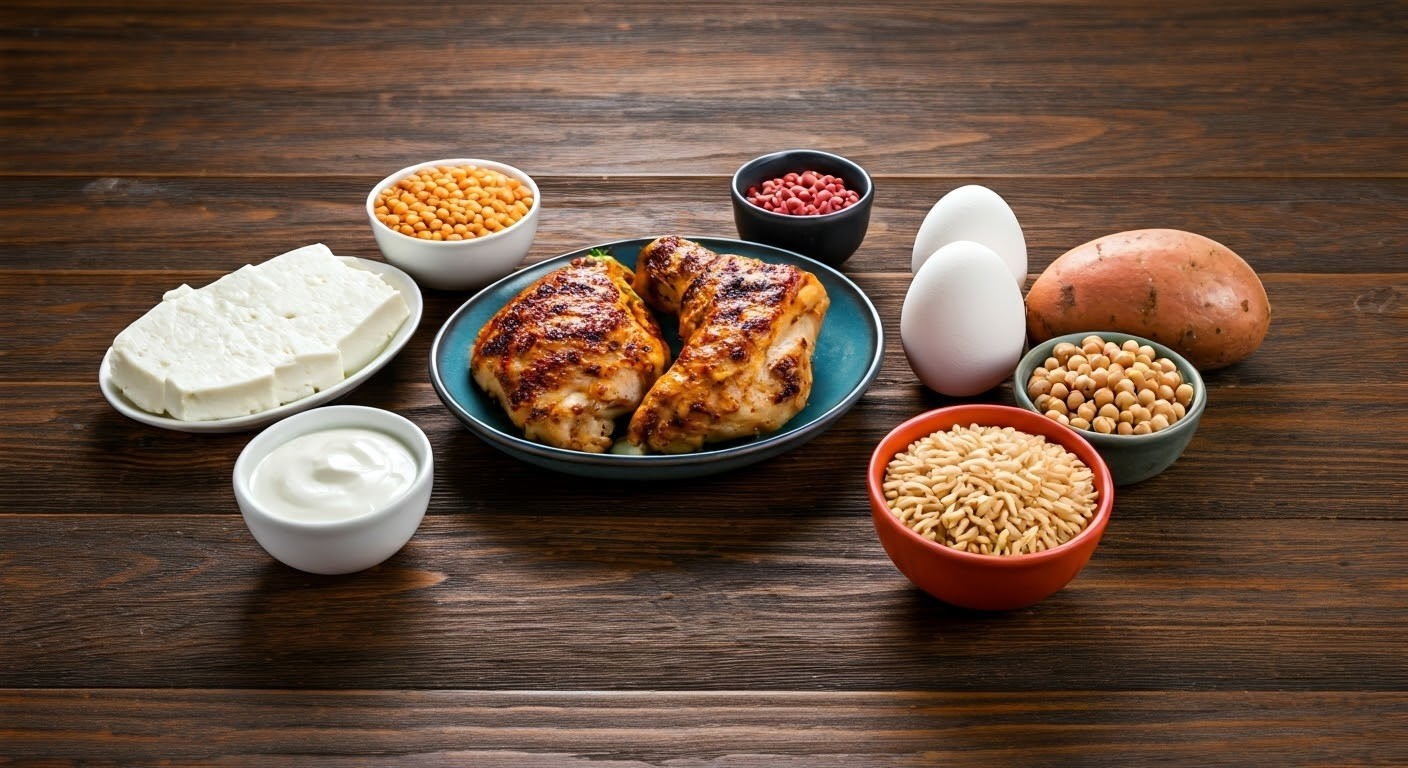
Protein rich foods on table
To fuel your strength training progress effectively, opt for foods rich in amino acids like lean protein sources such as chicken, fish, and tofu to promote lean muscle mass. Incorporate whey protein, Greek yogurt, and cottage cheese for muscle repair and growth. Include healthy fats from sources like olive oil, nuts, and fatty fish to support overall body function.
Paneer
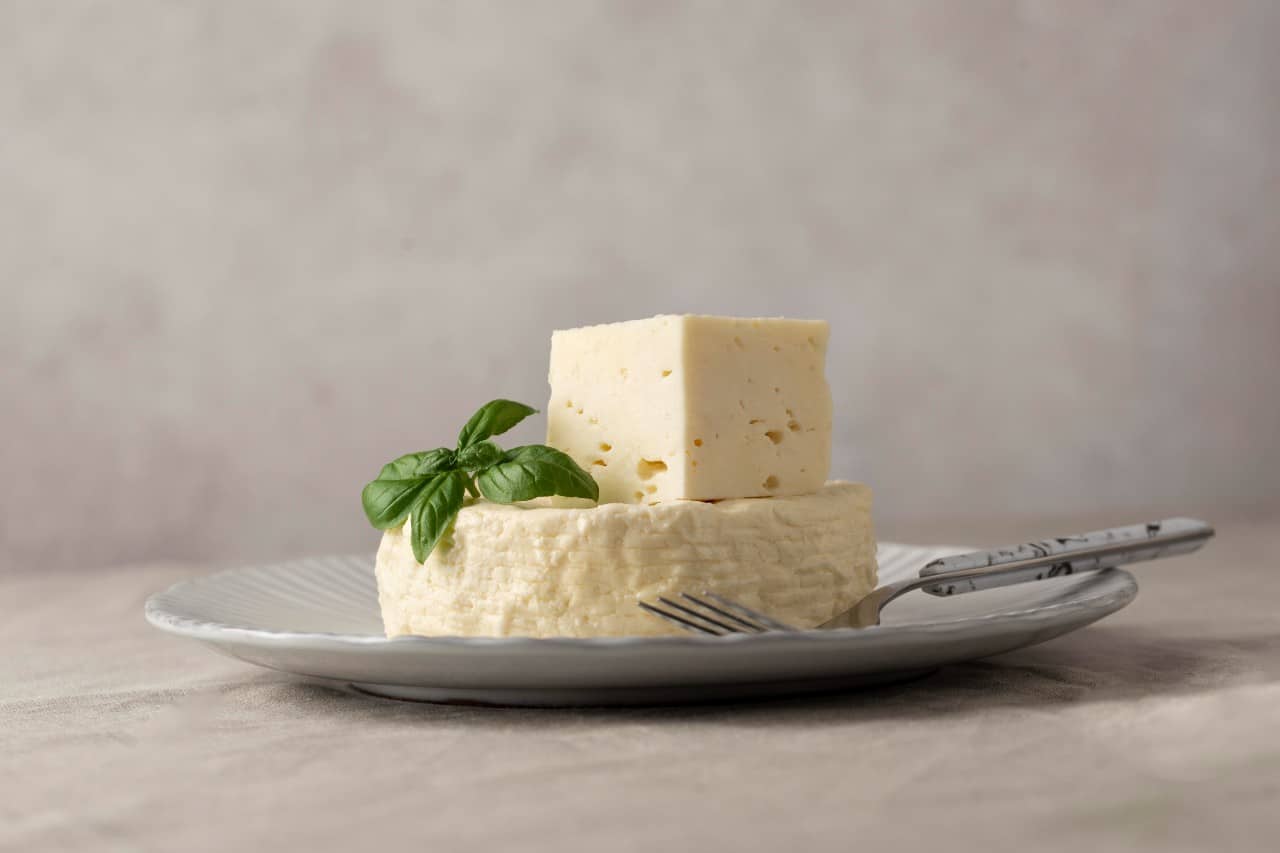
Image of Panner
Paneer ranks high on the preferred foods for strength training due to its varying fat content. It is a solid source of calcium, phosphorus, selenium, vitamin B12, riboflavin (B2), and other essential nutrients. This low-calorie, high-protein food helps in muscle recovery and fat loss.
The high-quality protein in paneer contains all the essential amino acids needed to build and repair muscles after an intense workout; thus, it’s a no-brainer to include this protein powerhouse in your diet if you aim for peak strength training performance.
Lentils (Dal)
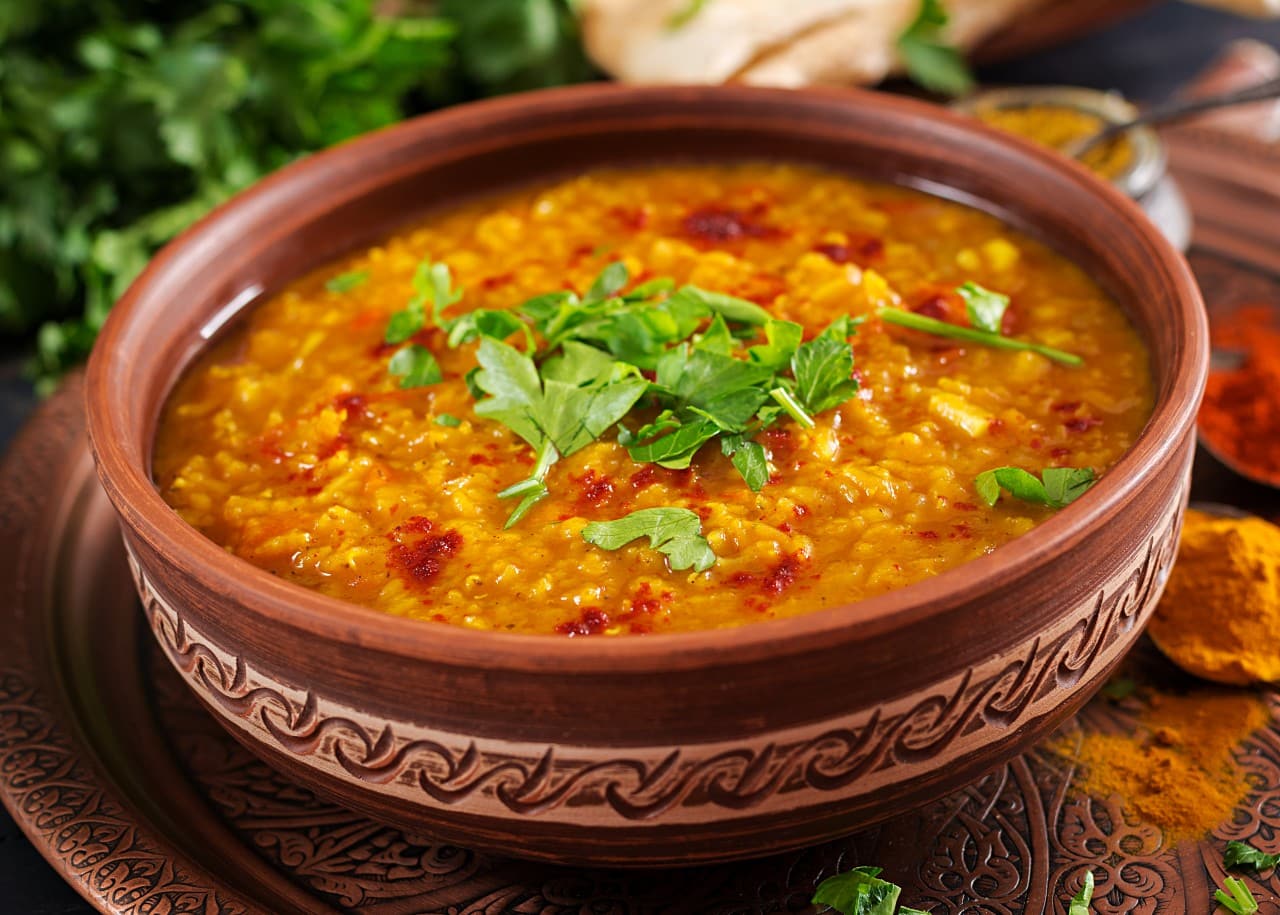
Picture of dal curry
Lentils, popularly known as ‘Dal’ in Indian households, should form an integral part of any strength training diet. They are rich in protein, providing an average of 18 grams per cooked cup (approximately 240 ml), and they’re also a great source of fibre, making them an ideal food for those looking to cut fat while building muscle.
Lentils’ high protein content is significant for muscle hypertrophy, i.e., muscle growth, a primary goal of strength training. Thus, there’s no doubt that this humble pulse finds its rightful place on the list of the best foods for strength training.
Chickpeas (Chole)
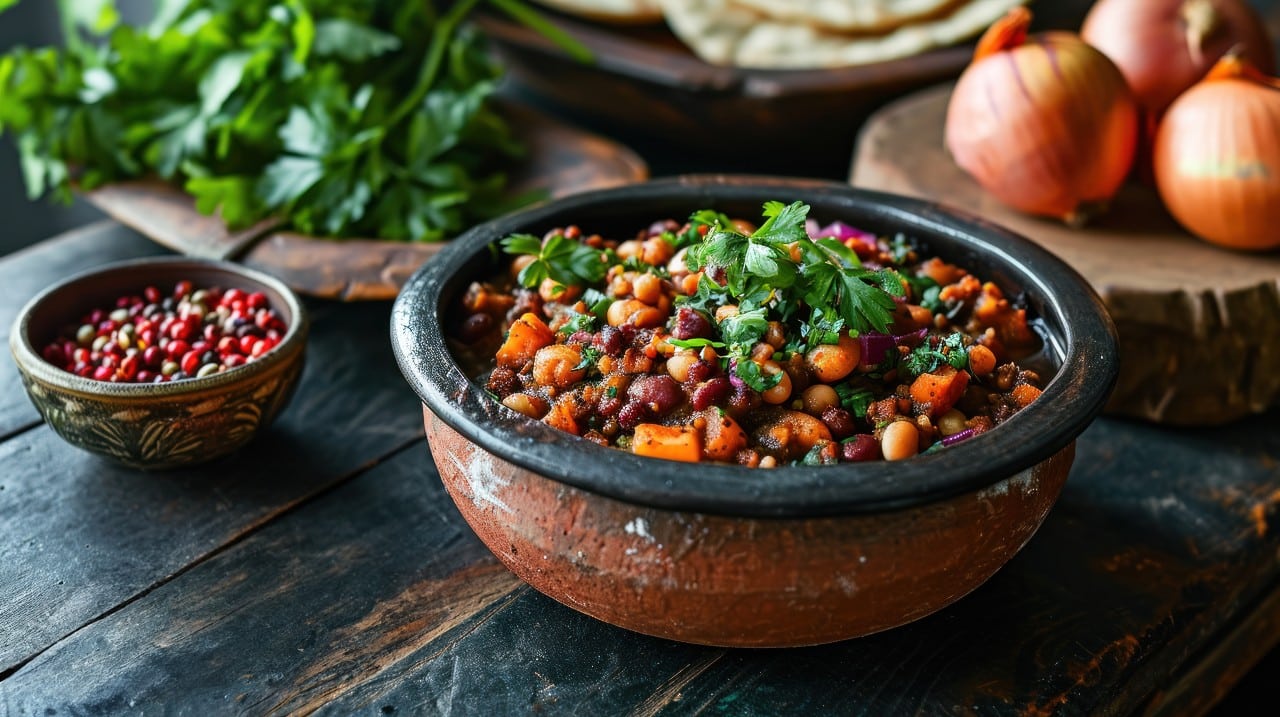
Picture of chickpeas
In the universe of legumes, chickpeas, known as ‘chole’ or ‘garbanzo beans,’ and kidney beans are the undebatable champions for strength training nutrition. Chickpeas are protein-packed, offering around 15 grams per cooked cup (approximately 240ml). They are also an excellent source of complex carbohydrates, with about 45 grams per cup, helping to regulate your energy level during workouts.
Their rich content of micronutrients such as iron, phosphorus, and B vitamins enhances overall health and aids athletic performance. Whether you enjoy them in your salads, roast them for a crunchy snack, or blend them into hummus, chickpeas and kidney beans are a go-to food for anyone on strength training.
Brown Rice
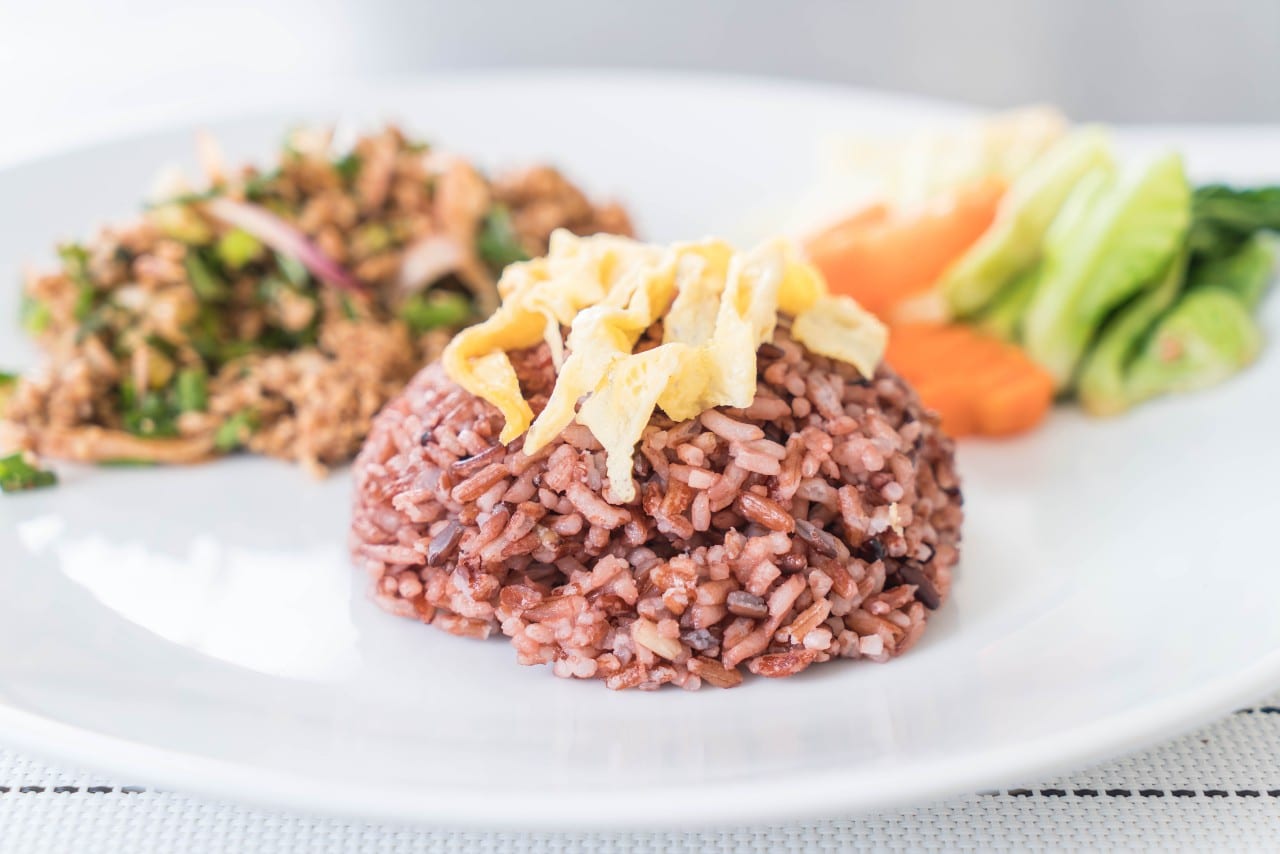
Brown rice food on a plate
Brown rice is another staple in the diets of many athletes and fitness enthusiasts, and it’s not hard to understand why. It perfectly balances complex carbohydrates and fibre, ensuring a slow and steady release of energy during your workout.
It is much needed to ensure longer, more rigorous strength training sessions. Brown rice also contains minerals such as magnesium and phosphorus for bone health and energy production. Considering these benefits, brown rice can be a winning component in your strength-training diet.
Sweet Potatoes
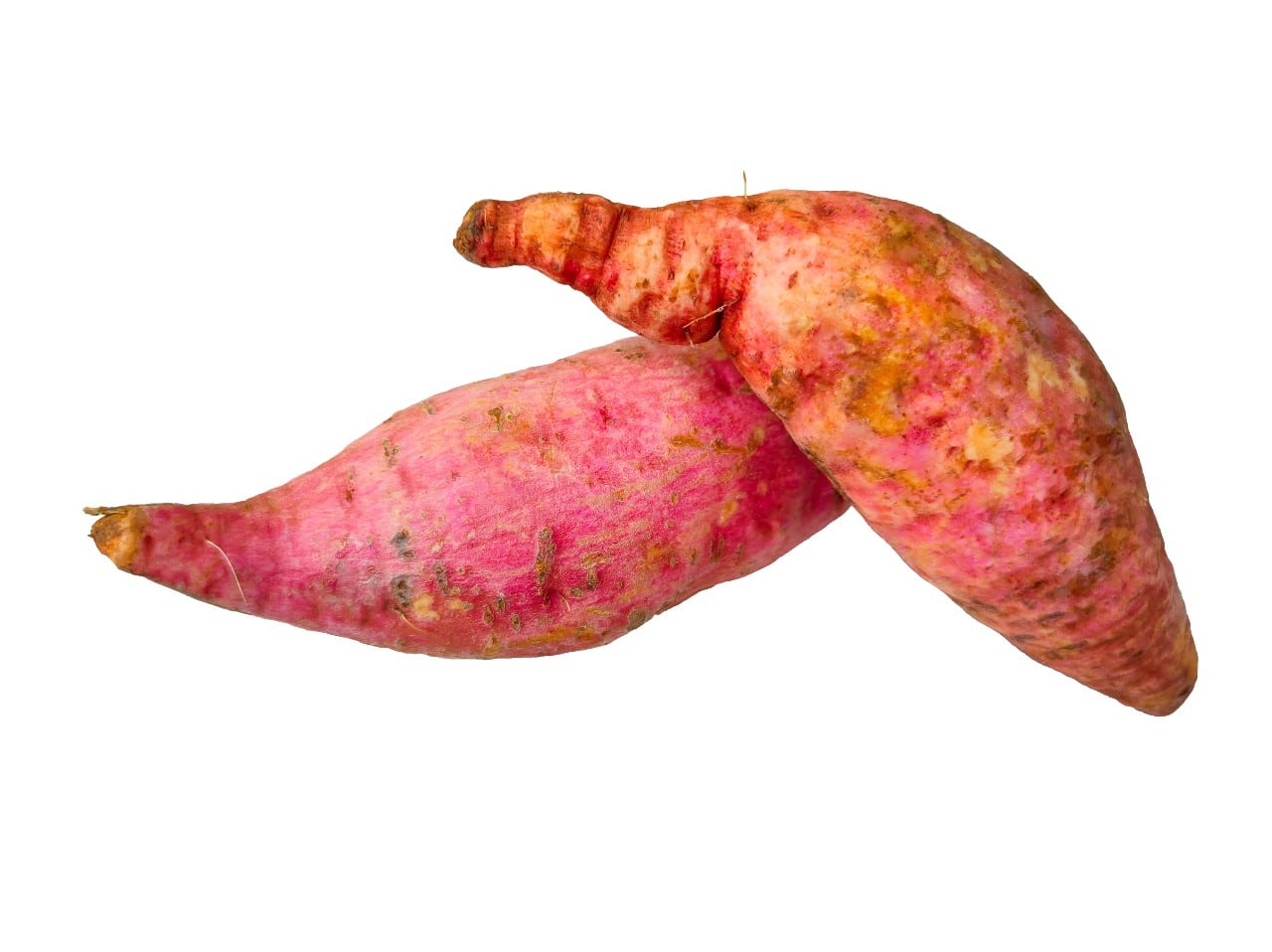
Picture of sweet potatoes
Sweet potatoes are a powerhouse of complex carbohydrates, fibre, and essential vitamins, making them a perfect addition to a strength-training diet. They provide slow-releasing energy, helping you power through intense workouts while supporting muscle recovery. Rich in vitamin A, potassium, and antioxidants, they aid in reducing inflammation and improving overall endurance.
Pair sweet potatoes with a protein source like paneer, eggs, or lentils for best results. Whether roasted, boiled, or mashed, they make a nutrient-dense pre or post-workout meal, keeping you fueled and ready for peak performance.
Grilled Chicken or Fish
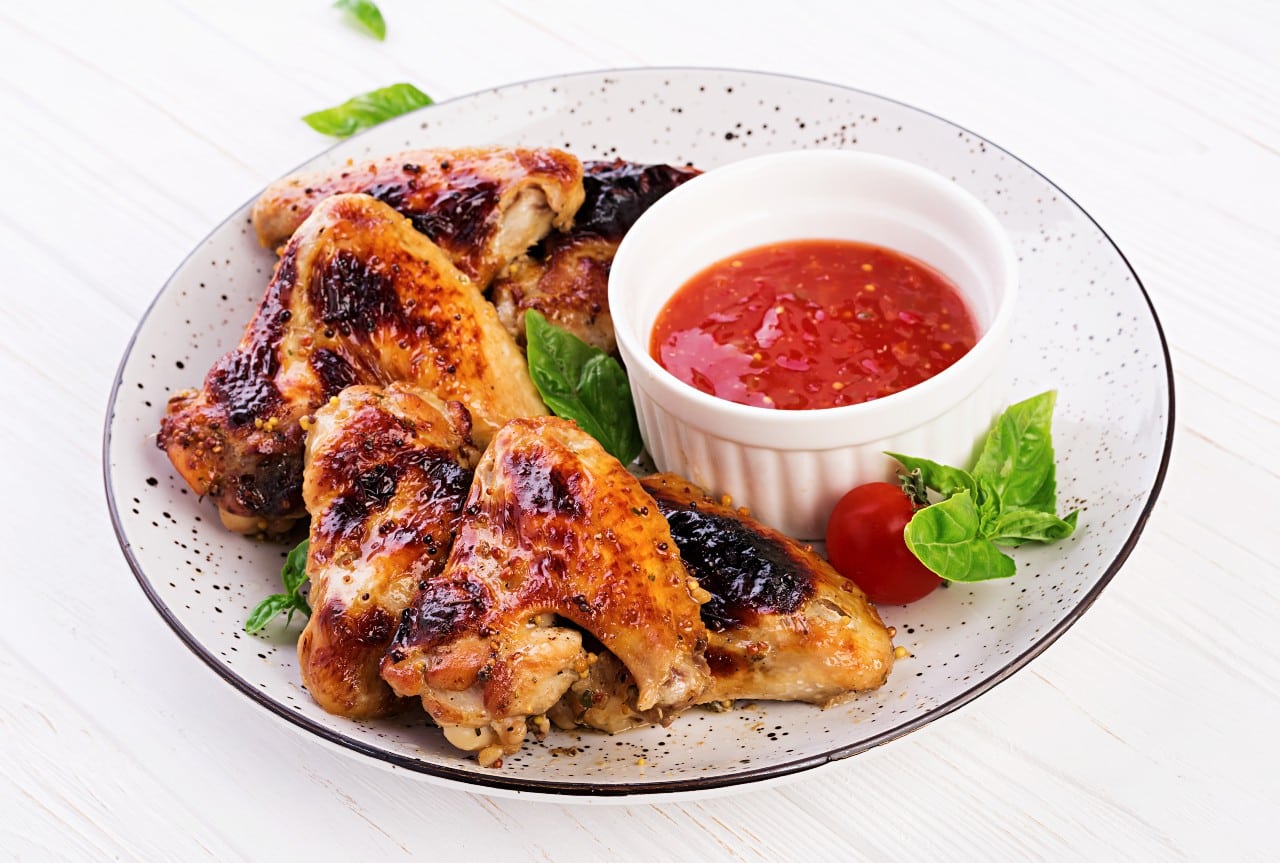
Grilled Chicken with tomato sauce
For non-vegetarian athletes, grilled chicken and fish are excellent protein sources for strength training. Chicken breast provides 26g of lean protein per 100g and essential amino acids and B vitamins for muscle growth and recovery.
Fatty fish like salmon and tuna offer high-quality protein, omega-3 fatty acids for heart health, and vitamin D for bone strength and muscle performance. Adding these to your diet can enhance strength training results.
Greek Yogurt
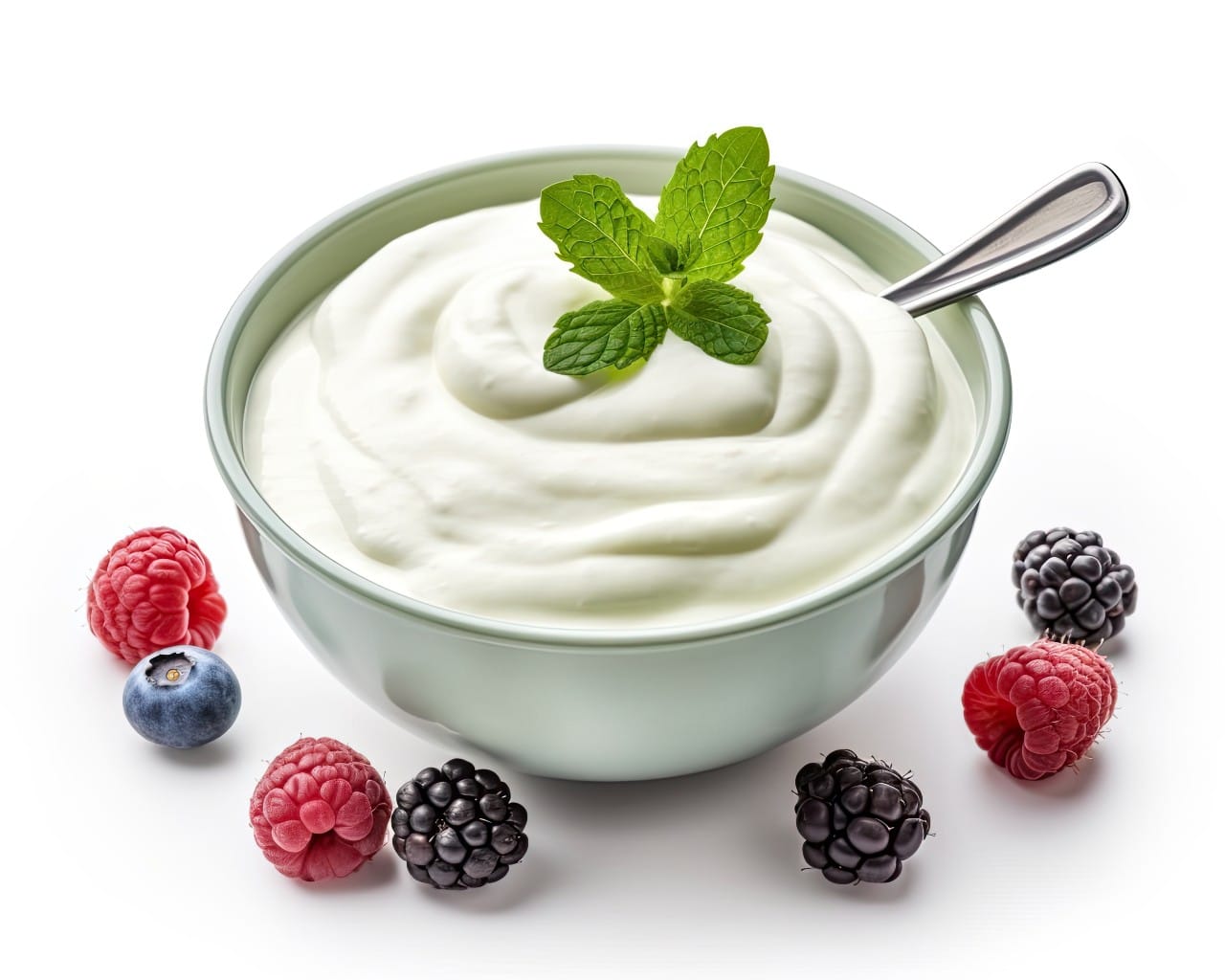
Greek yoghurt in a bowl
Greek yoghurt is a strength-training staple, packed with high-quality protein, nearly twice the amount of regular yoghurt. It contains casein, a slow-digesting protein that supports muscle growth during sleep or fasting periods. This makes it an excellent pre-bedtime snack or a midday protein boost.
Beyond protein, Greek yoghurt is rich in calcium for bone strength and probiotics for gut health, aiding digestion and nutrient absorption. It also helps muscle recovery and keeps you full for longer, making it a must-add to your strength training diet. Enjoy it plain, with fruits, or in smoothies for a nutritious and delicious boost.
Eggs
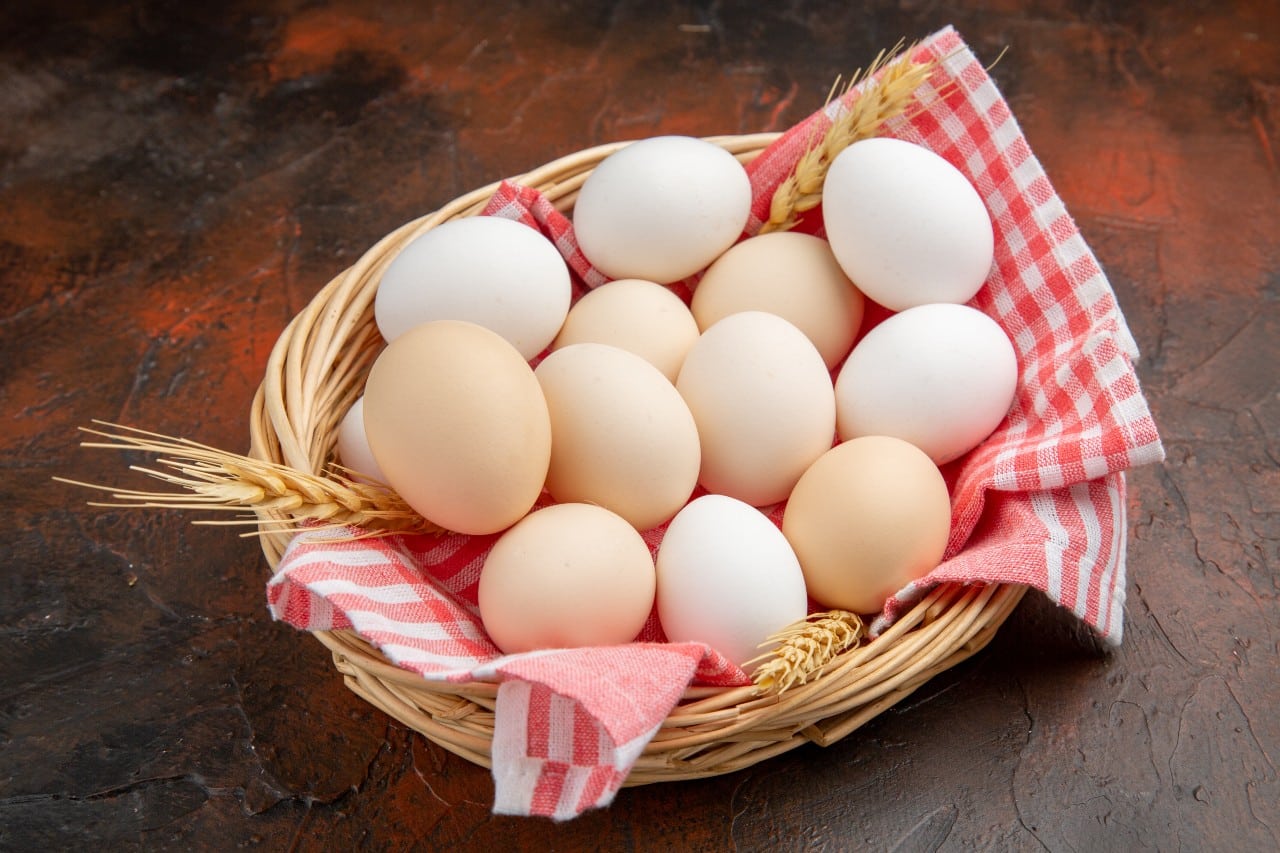
Picture of white eggs
Eggs are a nutrient powerhouse for strength athletes. They are affordable, versatile, and packed with high-quality protein. Each egg provides 7g of complete protein with all nine essential amino acids for muscle recovery and growth.
Rich in B vitamins A, D, E, and omega-3s, eggs contain leucine, a key amino acid for muscle protein synthesis. Whether boiled, scrambled, or poached, they are a must-have in any strength training diet.
Why Nutrition Plays a Vital Role in Your Strength Training Success?

A Women exercise with healthy food
Nutrition plays a crucial role in strength training and weight training. It provides the energy needed for workouts, supports recovery, and enhances overall performance. According to the American College of Sports Medicine, proper food and fluid intake before, during, and after exercise helps maintain blood glucose levels, optimize performance, and speed up recovery.
Key Benefits of Nutrition in Strength Training:
- Sustains energy levels for intense workouts
- Aids muscle recovery and reduces fatigue
- Supports immune function to prevent illness
- Enhances body composition by promoting muscle gain and fat loss
- Improves strength performance and muscle hypertrophy
- Keeps you satiated, preventing unnecessary cravings
Eating the right foods at the right time maximizes strength and muscle growth.
The Best Food to Eat During Training
Eating the right foods at the right time can significantly impact your strength training and weight lifting performance, endurance, and recovery. Proper nutrition before, during, and after workouts ensures sustained energy, minimizes muscle breakdown, and accelerates recovery. Here’s what you need to know:
What Should You Eat Before Training?
A well-balanced pre-training meal fuels your workout by providing sustained energy. Mixing 30-45g of complex carbs and protein helps maximize performance. Here are some simple pre-workout meal ideas to keep you energized:
- One large banana and a cup of cottage cheese: A combination of quick-digesting carbs and protein for sustained energy.
- Two slices of whole-wheat toast with one whole egg plus three egg whites: Whole grains and protein to support energy and muscle building.
- A whole wheat tortilla paired with a cup of chopped chicken breast, topped with avocado: A balanced mix of protein, healthy fats, and carbs for long-lasting fuel.
The timing of this meal is also crucial—plan to consume these pre-workout meals 60 to 90 minutes before your training session for optimal benefits.
How Can You Fuel Your Body During Training?
Staying fueled during your workout is essential to maintain energy and performance. Without proper fueling, your body may run out of energy, leading to early fatigue and decreased performance. Keeping your energy levels steady also helps to improve focus, endurance, and strength during exercise. Here’s how:
- Hydrate: Drink water regularly to prevent dehydration and keep your muscles working efficiently.
- Electrolytes: Include sports drinks or coconut water to replenish lost electrolytes and maintain fluid balance.
- Easy-to-digest carbs: If your workout is long or intense, consider consuming a small snack like a banana or energy gel for quick energy.
- Avoid heavy meals: Stick to light snacks to avoid feeling sluggish during training.
Focus on staying hydrated and replenishing energy sources to keep your body at its peak throughout the session.
What’s the Best Post-Training Meal?
Your post-training meal is crucial for muscle recovery and replenishing energy. Here are some key ideas:
- Protein: Include lean sources like chicken, fish, or plant-based options to help repair and build muscle. Protein plays a vital role in muscle synthesis and recovery.
- Carbs: Add complex carbs like sweet potatoes, brown rice, or quinoa to restore glycogen levels and boost recovery. Carbs help replenish the energy stored depleted during intense workouts.
- Healthy Fats: Incorporate healthy fats from sources like avocado, nuts, or olive oil to support overall recovery and inflammation reduction. Fats are essential for hormone production and overall bodily functions.
- Hydration: Drink water to rehydrate and restore fluids lost during training. Proper hydration helps in nutrient transport and muscle function.
A balanced meal with protein, carbs, and fats helps to optimize recovery, rebuild muscle, and prepare your body for the next training session. Aim to eat within 30–60 minutes after exercising to maximize the benefits. Additionally, including micronutrients like vegetables can support overall health and reduce inflammation, ensuring long-term progress in your training routine.
Sample meal plan
Based on the information above, your ideal meal plan will differ significantly based on your needs, training level, and overall health. However, the most important thing is that you follow a balanced approach. Below is a sample meal plan to guide you through your strength-training diet, especially for weight lifters.
| Time of Day | Meal Description |
| Morning (Pre-Workout) | 1 large banana and 1 cup cottage cheese. |
| After Workout (Post-Workout) | protein shake: 2 scoops of protein blended with oat milk, chia seeds, and fruits. |
| Lunch | Grilled chicken breast, brown rice, and steamed broccoli. A side of Greek yogurt for dessert. |
| Evening Snack | Hard-boiled egg and a handful of almonds. |
| Dinner | Pan-roasted salmon served with sweet potatoes and a mixed green salad. Finish off with a serving of paneer for dessert. |
This plan should serve as a guide only. Your meals should coincide with your energy demands, food preferences, and any specific dietary requirements or restrictions. Remember, undereating or skipping meals can sabotage your muscle-building efforts. It’s essential to fuel your body consistently throughout the day to support muscle growth, repair, and keep your metabolism humming.
Are Supplements a Game-Changer for Your Strength Journey?
Supplements can significantly support your strength training goals, but they aren’t a replacement for proper nutrition and training. Here’s how supplements might help and what to consider:
- Filling Nutritional Gaps
Supplements can be beneficial when your diet lacks certain nutrients. For example, if you cannot get enough protein from whole foods, protein powders can help you meet your daily intake. Similarly, vitamins and minerals like vitamin D, magnesium, and zinc often come in supplement form to ensure your body gets what it needs for optimal performance and recovery.
- Boosting Performance
Eating the right foods at the right time can significantly impact your strength training and weight lifting performance, endurance, and recovery. Proper nutrition before, during, and after workouts ensures sustained energy, minimizes muscle breakdown, and accelerates recovery. Here’s what you need to know:
- Promoting Muscle Recovery
After intense training, your muscles need time and nutrients to recover. Supplements like BCAAs (Branched-Chain Amino Acids) or whey protein can aid in muscle repair and reduce soreness. BCAAs are essential for muscle recovery and can help prevent muscle breakdown during long or strenuous workouts. Protein supplements help rebuild muscle tissue, leading to better growth over time.
- Supporting Joint Health
Supplements like collagen, glucosamine, and turmeric can help keep your joints healthy and prevent injuries. Joint health is often overlooked during strength training, but these supplements can provide support, reducing inflammation and improving mobility. They’re especially beneficial for athletes or those engaging in heavy lifting.
- Not a Substitute for a Solid Diet
It’s important to remember that supplements should complement a well-balanced diet, not replace it. Eating nutrient-rich whole foods should always be your top priority. Supplements can enhance your training results, but they won’t work if your diet and exercise plan are lacking.
Which Foods Should You Avoid for Maximum Muscle Gain?
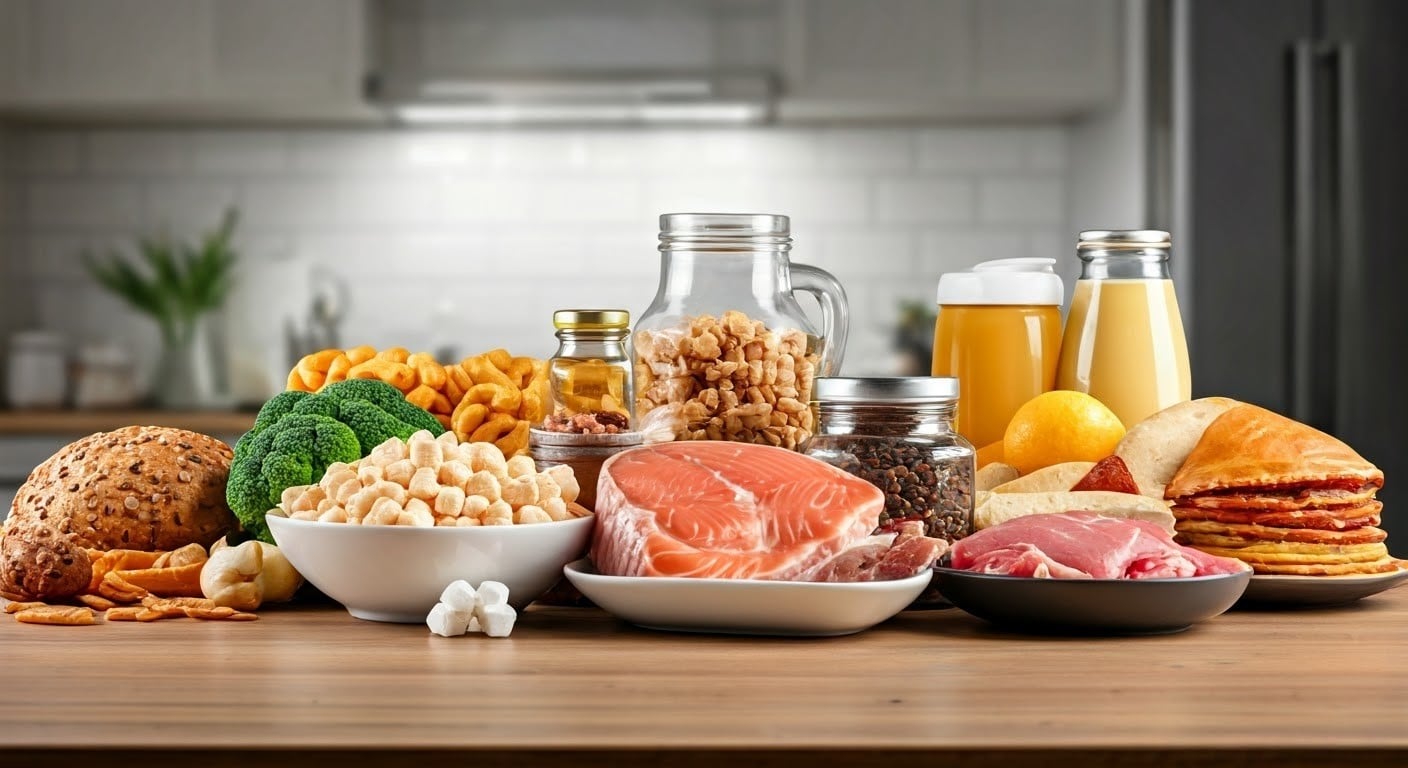
Foods on the table
To maximize muscle gain, it’s essential to avoid certain foods that can hinder your progress:
- Sugary Foods and Beverages: Refined sugars in candies, soda, and baked goods promote fat storage and offer little nutritional value, slowing muscle growth.
- Processed Meats: Foods like bacon and sausages are high in unhealthy fats and preservatives, leading to inflammation and hindered muscle recovery.
- Deep-Fried Foods: Fried foods are loaded with unhealthy oils and trans fats, contributing to fat gain and disrupting metabolism.
- Refined Carbs: White bread, rice, and pasta can spike blood sugar and cause energy crashes, leaving you sluggish and impacting your workouts.
- Low-Protein Diets: Insufficient protein hinders muscle repair and growth. Ensure you’re consuming enough protein-rich foods like lean meats and dairy.
- Artificial Sweeteners: Artificial sweeteners can disrupt insulin regulation, negatively affecting muscle growth. Opt for natural alternatives if needed.
Avoiding these foods and focusing on nutrient-dense, whole foods will help you build muscle effectively and support recovery.
Conclusion
Based on the information above, your ideal meal plan will differ significantly based on your needs, training level, and overall health. However, the most important thing is that you follow a balanced approach. Below is a sample meal plan to guide you through your strength-training diet, especially for weight lifters.
Whether you choose grilled chicken or paneer, lentils or brown rice, the right combination of nutrients fuels protein intake, muscle growth and recovery. Minor adjustments in your diet can significantly improve strength and endurance. After all, you are what you eat, and the proper nutrition can make all the difference in achieving peak performance.
Frequently Asked Questions
How Much Protein Do I Need for Strength Training?
As a general rule of thumb, if you’re engaging in strength training, you should aim to consume between 1.2 and 2.0 grams of protein per kilogram of body weight each day, or 0.54 to 0.91 grams per pound of body weight, which translates to approximately 1.2 to 2.0 grams of protein per pound of bodyweight. However, your needs may vary depending on your goals and activity level.
Should I Count Calories While Strength Training?
While not strictly necessary, counting calories and creating a calorie surplus can be beneficial for keeping track of your calorie intake of essential nutrients– proteins, carbohydrates and fats, and ensuring you’re consuming enough to fuel your workouts and support recovery and muscle growth. However, the focus should be primarily on the quality of calories consumed.
What to eat for stamina?
Foods that provide long-lasting energy are crucial for stamina. Opt for complex carbohydrates like whole grains, brown rice, and sweet potatoes for slow, sustained-release energy, lean proteins such as grilled chicken and paneer for muscle repair, and healthy fats from nuts and seeds for additional fuel.







